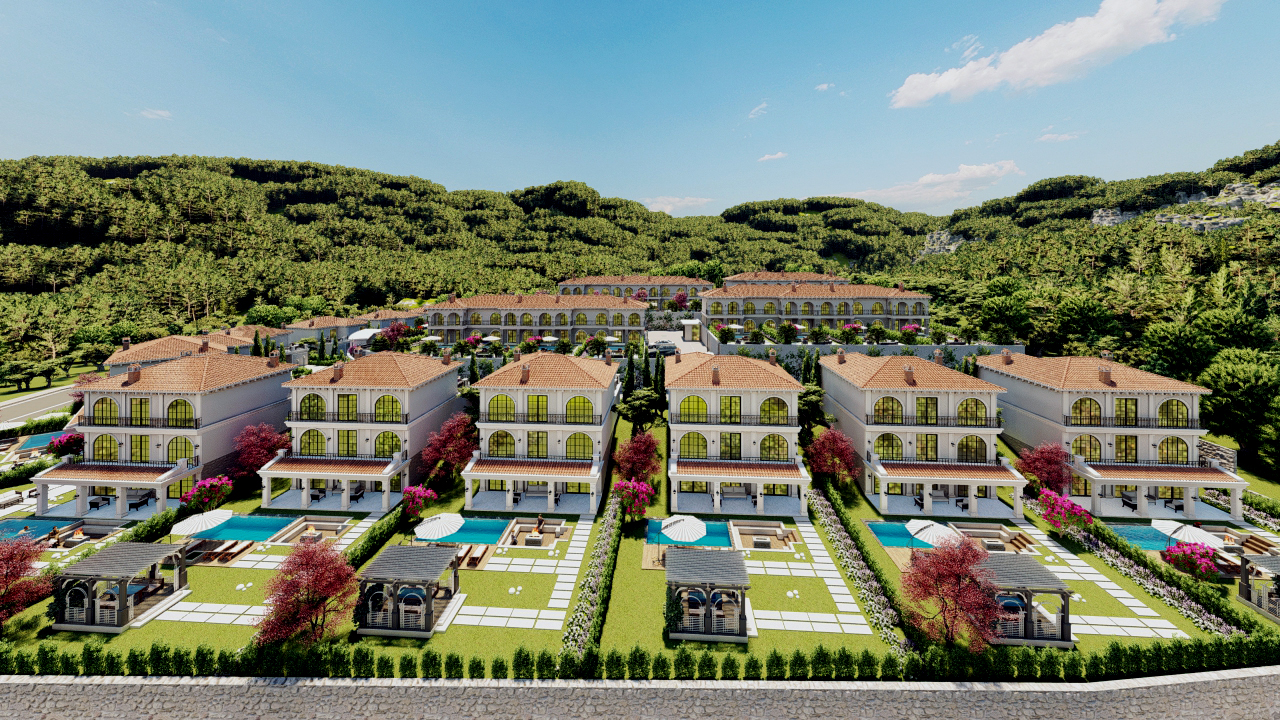Invest in Turkiye
Home » Invest in Turkiye
Dynamic Investment Opportunities
History
Culture
Tourism
Living In Turkiye
Moving To Turkiye
History
The Middle Ages
The region of Anatolia (the Asian portion of modern day Turkiye) has a rich history, but it wasn’t until the Seljuk Turks began to migrate to the region in the 11th century, the region wasn’t known as Turkiye.
Under the command of Alp Arslan, the Seljuks defeated the Byzantine Empire’s armies at the Battle of Manzikert in 1071, which heralded the start of absolute Turkish dominance over the region with the Seljuk Sultanate of Rûm and several small beyliks, and the Seljuks ruled Anatolia until the Mongol Empire’s invasion and the Seljuks ruled Anatolia until the Mongol Empire’s invasion. The Seljuk Empire was defeated in 1243 by the Mongol army in the Battle of Kosedag, leading to Mongol rule over Anatolia for 80 years. As the Mongol dominance weakened over the years, The Byzantines asserted greater control over the region and this led small local Turkish principalities also developped alongside.
From the 13th century century, the Ottoman beylik of the Analtolian region began to unite Anatolia under the banner of the Ottoman empire
Early Modern Era
In 1453, the Ottoman Empire fatally wounded the Byzantine Empire when it captured the Byzantine capital at Constantinople.
By the 16th century, the Ottomans had conquered most of Northern Hungary and as far west as Algeria in North Africa. At its peak period, the Ottoman Empire expanded its lands in three continents – Europe, Asia and Africa. By promoting art, culture, religious tolerance and education, the empire left constant marks on both Islamic and world history.
Modern Era
From the Ottoman Empire began to lose territory during the 18th century, Greece, the Balkans, Algeria, Libya, and Tunisia had seceded. After the Ottoman Empire collapsed following its defeat in World War I, strategically important lands of the empire were occupied by the victorious Allies. A group of military officers led by Mustafa Kemal Atatürk successfully organized the Independence War against the Allies. In 1923, the Republic of Turkiye was founded by Mustafa Kemal Atatürk and he became the first president of the republic.
Turkiye has become increasingly integrated with the West through its membership in organizations such as the Council of Europe, NATO, OECD, OSCE, and the G-20. Turkiye began negotiations for full membership in the European Union in 2005, after being an associate member of the European Economic Community since 1963 and agreeing to a customs union in 1995.
Turkiye has also fostered close cultural, political, economic and industrial relations with the Middle East, the Turkic states of Central Asia and the African countries through membership in organizations such as the Organization of the Islamic Conference and the Economic Cooperation Organization.
Due to its strategic location, large and powerful economy and army, Turkiye is classified as a major regional power.
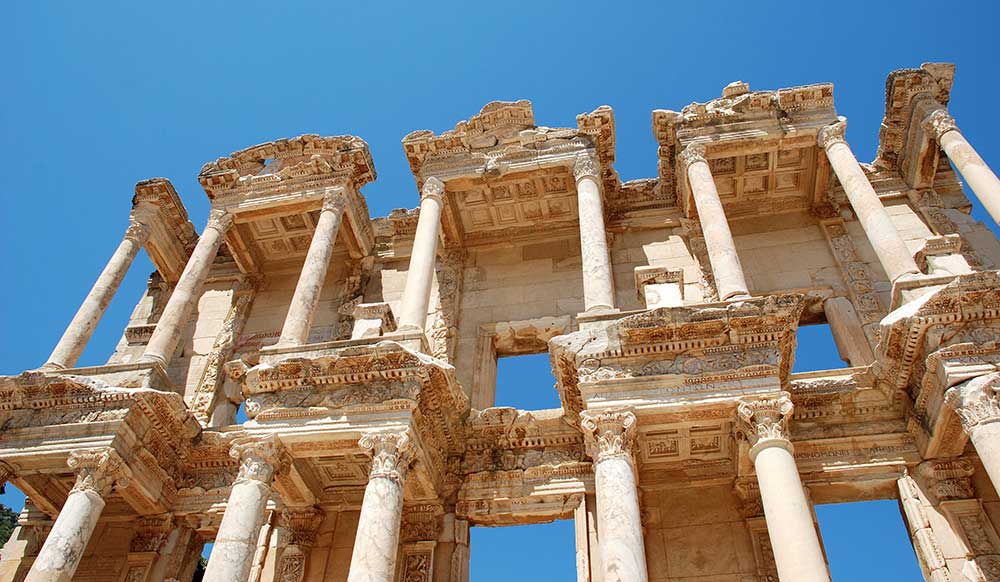
Culture
Turkiye is and always has been a bridge between cultures. Dualities of Europe and Asia, traditionality and modernity, as well as urban and rural have led to a historical mosaic and a rich cultural heritage – both past and present.
Today, Turkiye is both an Eastern and a Western nation when it comes to its cultural orientation. This cohesion of tradition and modernity and its impacts on art as well as urban and rural motifs have led Turkiye to be an exciting cultural heritage destination.
Literature, poetry, music, cuisine, art, cinema and every other expression of culture can be found in abundance in Turkiye. Whether you are visiting a city or a small town, whether you are in a tourist hub or in a local village, it is impossible to escape Turkiye’s cultural charm. No wonder Turkiye is one of the most visited countries by tourists.
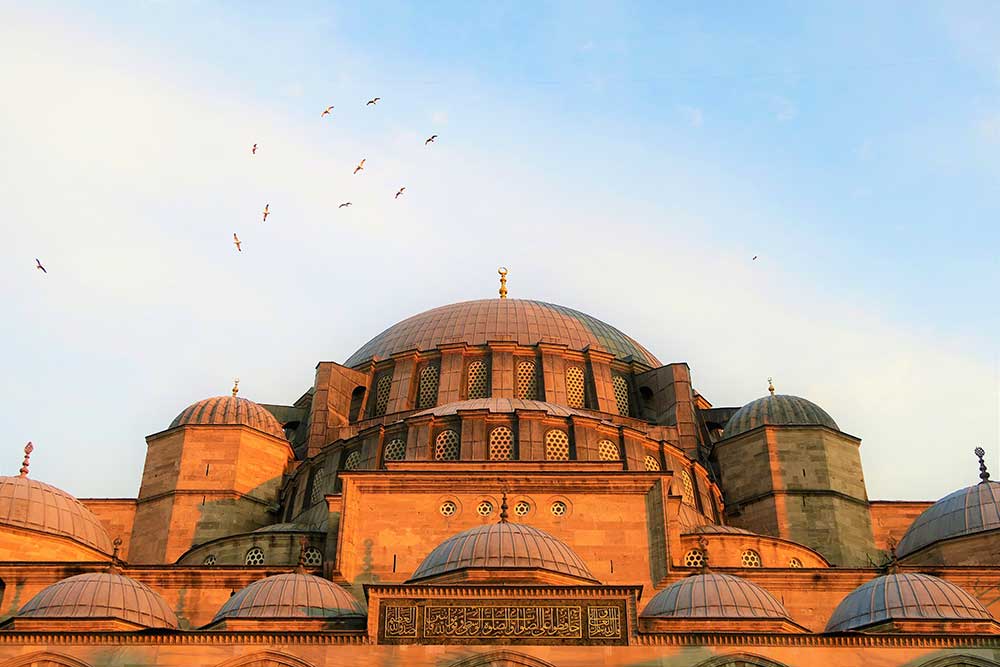
Tourism
Ranked as the world’s 6th most popular tourism destination in 2019, Turkiye offers mild weather, breathtaking natural beauty, unspoiled natural landscapes, historical and archeological sites, increasingly modern hotel and tourism infrastructure, as well as warm hospitality and competitive prices.
The Turkish coastline spans around 8,000 km with the most luxurious beaches in the world featuring clear and clean water and beautiful surroundings. Besides swimming, tourists can enjoy various beach activities such as surfing, rafting, snorkeling, diving and kayaking.
From the beaches of the Aegean and Mediterranean Sea to the vibrant cities of Istanbul and Izmir, Turkiye offers some of the best cuisine you will ever taste, cutting-edge arts and entertainment and fun-loving people.
Combined with the country’s natural beauty, countless options for outdoor adventures and beautiful vistas, Turkiye is a destination that must be visited, again and again.
Combined with the country’s natural beauty, countless options for outdoor adventures and beautiful vistas, Turkey is a destination that must be visited, again and again.
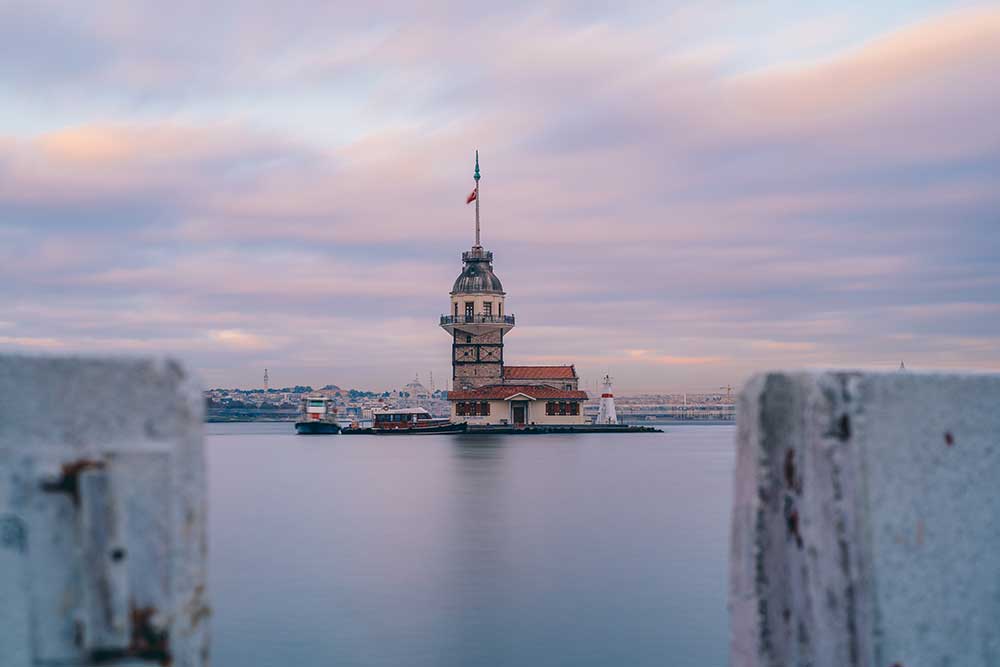
Living In Turkiye
With its unique geographical location combined with a rich history, beautiful landscapes, a cultural and arts scene, world-class cuisine and multitude of activity options to suit every taste, Turkiye is a great place to live in, to start a new life, to work or even for retirement.
Living in Turkiye is attractive because the country features:
- A highly-developed infrastructure
- Excellent air and sea transport systems
- An extensive network of highways
- High-speed train network
- Competitive and free education
- Widespread network of international schools
- Large-scale, internationally-accredited universities
- Extensive and free public healthcare system
- An excellent hospital network featuring international standards in equipment quality and expertise
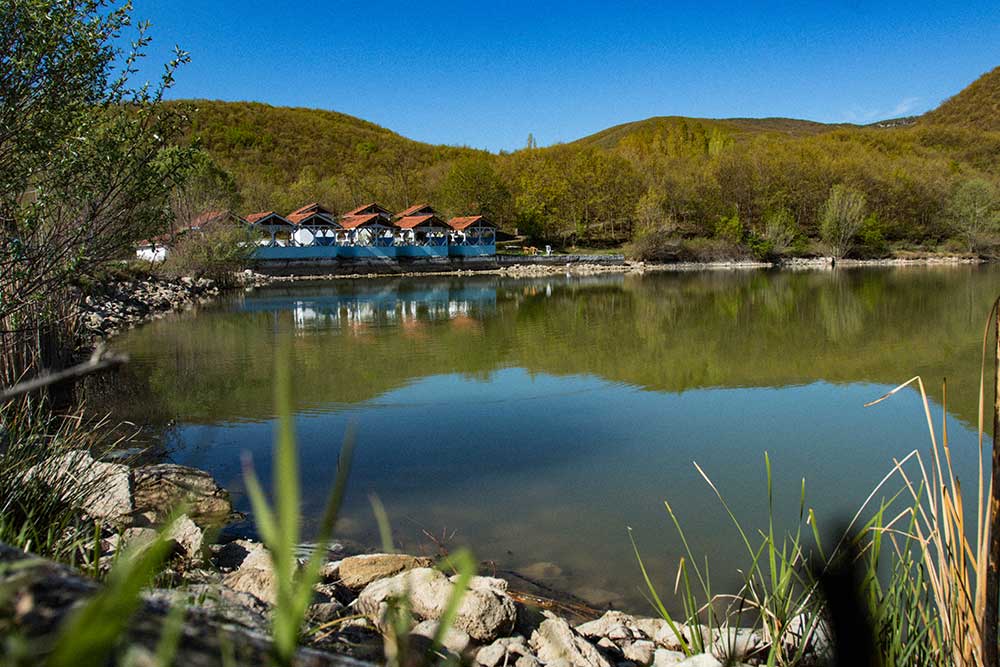
Moving To Turkiye
Over the past few years, an increasing number of people are moving to Turkiye.
The primary reason for this upward trend is the opportunity to purchase real estate in return for citizenship or residency.
Other factors that lead people to consider Turkiye as a place to move, live and work are:
- Strategic geographic location
- Low cost of living
- Stable and steady economic growth
- Increasingly world-class infrastructure
- Proximity to some of the world’s most lucrative economic markets
- Global and domestic connectivity
- Beautiful unspoiled landscapes
- Mild year-round weather
- Unbeatable history, culture and arts scene
- World-leading cuisine
The most popular cities for foreigners moving to Turkiye are the well-known cities of Istanbul, Ankara and Izmir. However, in recent years, lesser-known parts of Turkiye such as Trabzon and the Middle Black Sea region have also become popular as people look to take advantage of the scenery, serenity and crucially, the excellent property prices.
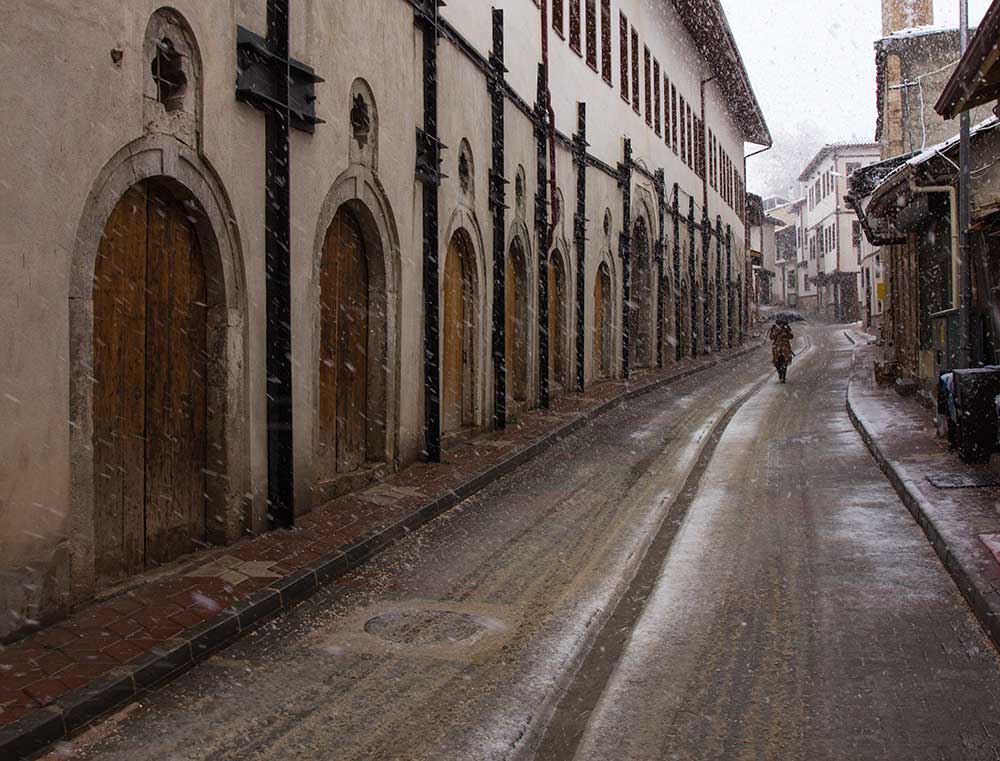
Global Rankings
Foreign Direct Investment
Reasons to Invest
Global Rankings
Turkiye is Ranked:
- 11th in GDP PPP (April 2021)
- 54th in Human Development index (2020)
- 33rd in Ease of Doing Business Index (2019)
- 49th in Bloomberg’s Global Innovation Index (2019)
- 27th in Credit Suisse Global Wealth Report (2019)
- 41st in Global Food Security Index (2017)
- 47th in World Bank Logistics Performance Index (2018)
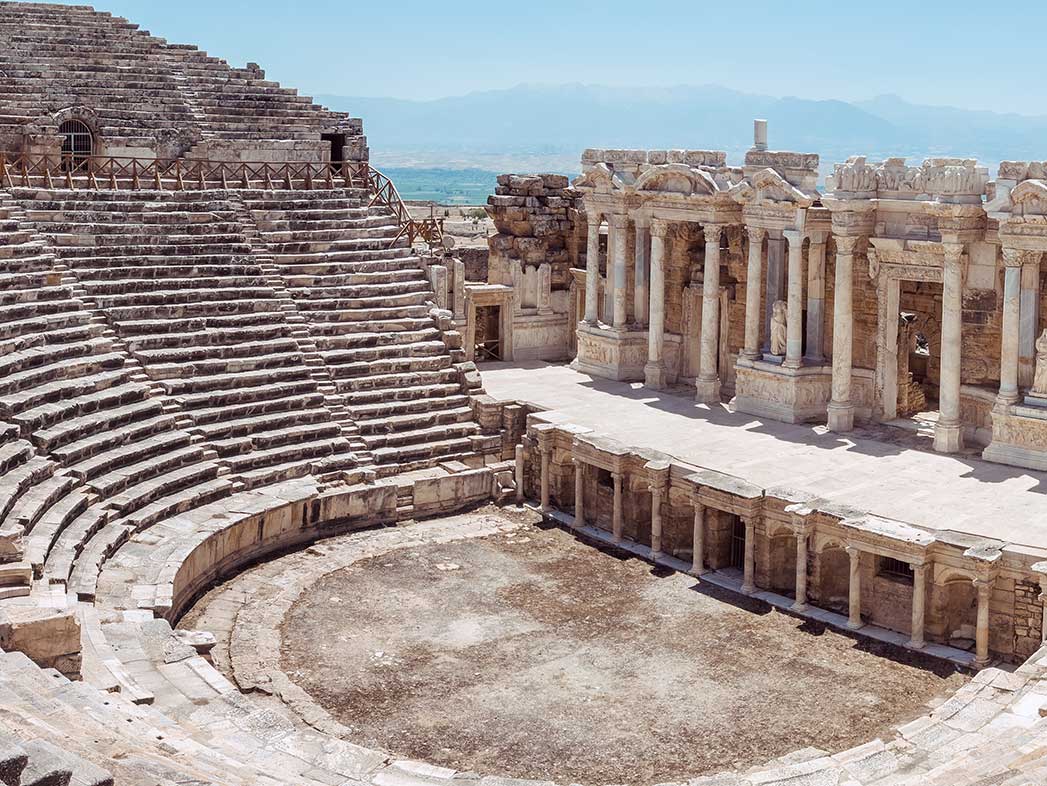
Foreign Direct Investment
Turkiye’s impressive growth performance and structural reforms implemented over the past decade and a half have made it a top destination for international investors.
According to FDI Markets, Turkiye became the 9th most popular FDI destination with 160 projects in overall Europe in 2020, retaining its ranking in 2019, while increasing its share in overall Europe from 3 percent in 2019 to 3.1 percent in 2020, despite the severe effects of Covid-19. In addition, within its developping peer countries in Europe, Turkiye was ranked as the 2nd most popular FDI destination after Poland, with a 16 percent share in 2020, up from the 3rd spot in 2019.
FDI Inflows to Turkey
Up until 2002, total FDI into Turkey stood only at USD 15 billion, while the country has since attracted around USD 225 billion of FDI during the 2003-2020 period.
Sectoral Diversification
The Finance and Manufacturing sectors have increasingly attracted the higher shares of investments, diversifying FDI inflows, in line with Turkiye’s 2023 vision.
Source Markets
The majority of FDI inflows to Turkiye have originated from Europe, North America, and the Gulf countries while the share of Asian inflows has risen noticeably in recent years.
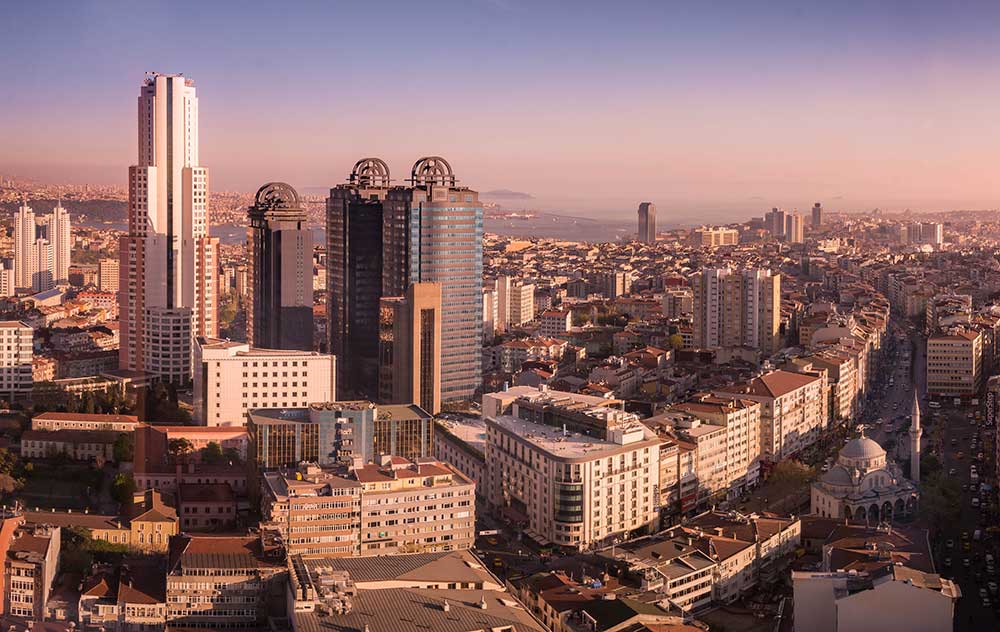
Reasons to Invest
1. ROBUST ECONOMY
One of the fastest growing economies in the world with an average annual GDP growth rate of 5.5%
2. LARGE DOMESTIC AND REGIONAL MARKETS
Sizeable domestic market, plus regional markets with FTAs allowing access to 1 billion consumers
3. STRATEGIC LOCATION
Regional HQ for multinationals with seamless global connectivity
4. FAVORABLE DEMOGRAPHICS
Young and dynamic population with half under 32 years old
5. SKILLED AND COMPETITIVE LABOR FORCE
Well-educated, competitive labor force with high productivity
6. CONTINUOUS REFORM PROCESS
New-generation reforms owing to an open public-private dialogue
7. LIBERAL INVESTMENT CLIMATE
No barriers for FDI, strong protection for investors
8. LUCRATIVE INCENTIVES
Tailored and comprehensive incentives schemes
8. ADVANTAGEOUS R&D ECOSYSTEM
Perfect spot for technology development with generous supports
9. SECTORAL OPPORTUNITIES
Diversified economy with lucrative opportunities in many sectors
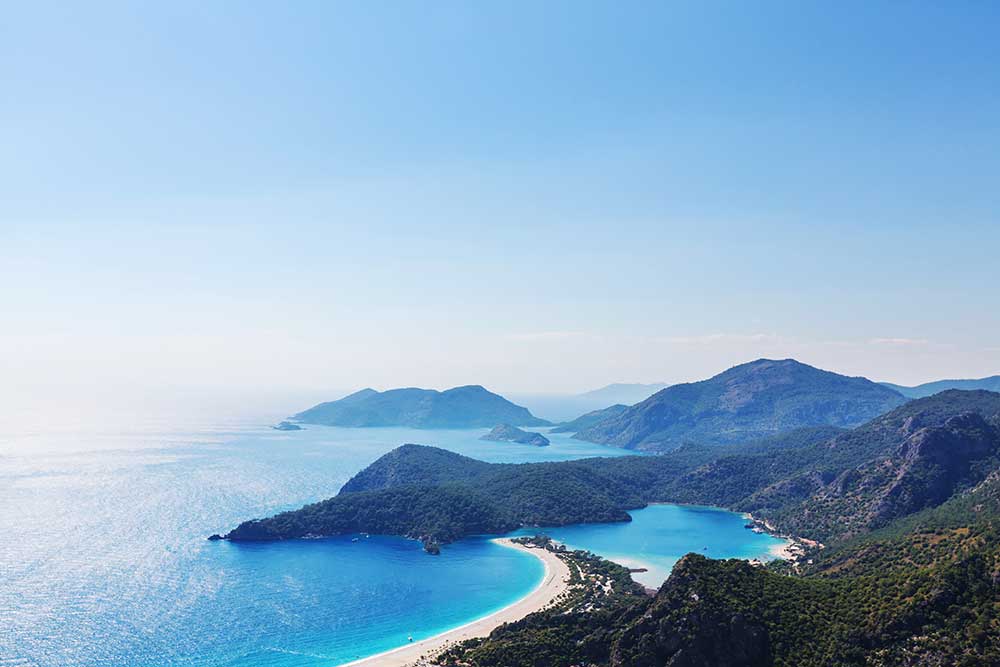
INVESTMENT ROUTES
RESIDENCY ELIGIBILITY
RESIDENCY BENEFITS
Turkiye grants Permanent residency to real investors who buy real estate in Turkiye worth at least:
- $75,000 in 31 metropolitan districts
- $50,000 in 51 developing districts
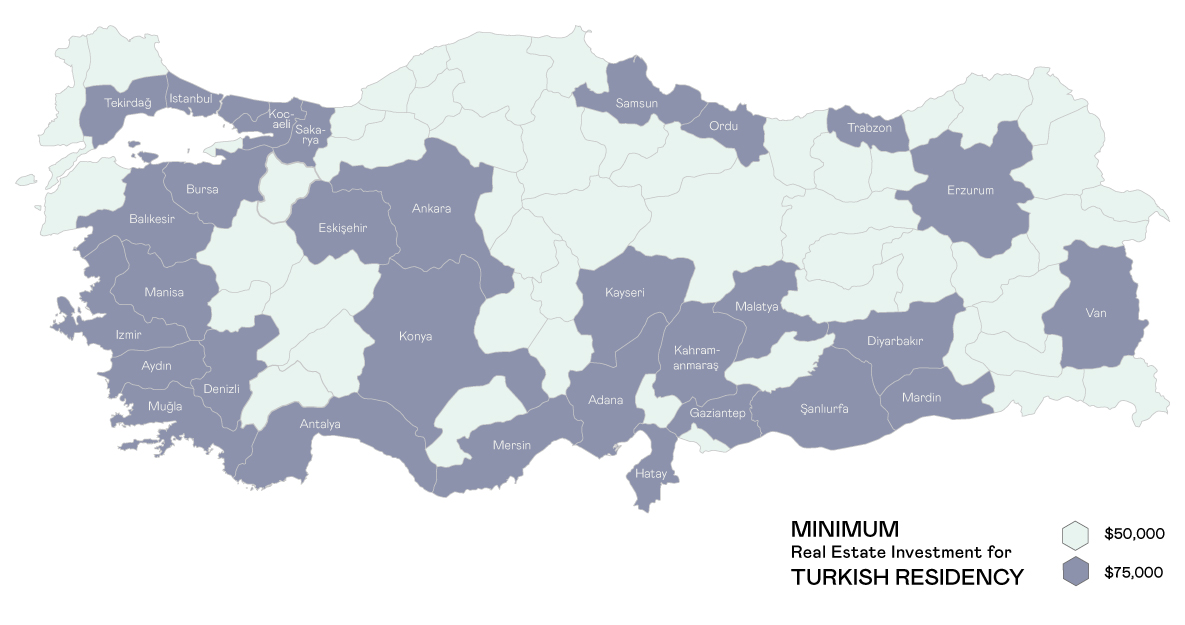
The main applicant must:
- Be at least 18 years old
- Hold a clean criminal record
- Have adequate health insurance
- Have never overstayed illegally in Turkey
- Make a lawful investment

Permanent Residency
- No eligibility interview
- No language proficiency test
- Turkish Permanent Residency within 8 weeks
- Spouse as well as children under 18 guaranteed
- Children of any age living with a disability guaranteed
- 18+ dependent children up to government discretion
Access
- Free healthcare
- Better economic opportunities
- Higher quality of life
Wealth
- No obligation to declare your wealth
- No tax on any income earned outside Turkiye
- 100% wealth repatriation (including all proceeds), with no exchange control
restrictions only for non-residents of Turkiye
Ongoing
- Renew Permanent Residency annually for small fee
- Sell the investment at anytime, however upon next renewal the applicant must hold property or business shares of the equal value or more
- Apply for Turkish citizenship after 5 years if 6 months out of each year are spent in Turkiye
Investment Routes
Citizenship by Real Estate Investment
Citizenship Benefits
Investment Routes
1 . REAL ESTATE
Buy real estate worth at least $400,000 with a restriction not to sell for 3 years
2. GOVERNMENT BONDS
Buy government bonds worth $500,000 with a condition not to sell for 3 years
3. BANK DEPOSIT
Deposit $500,000 cash in Turkish banks with a condition not to withdraw for 3 years
4. SHARE PURCHASE
Buy shares worth $500,000 in Turkish REITs or VCTs with a condition not to sell for 3 years
5. JOB CREATION
Create 50 full-time jobs in Turkiye
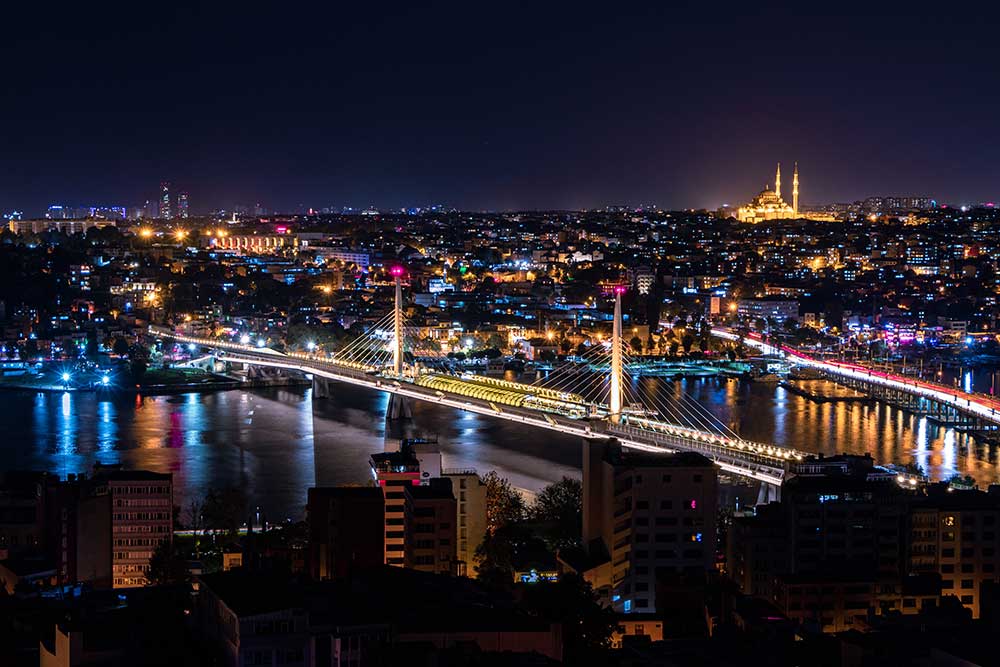
Citizenship by Real Estate Investment
The majority of investors purchase real estate in Turkiye as a path to citizenship.
This route has made Turkiye one of the most popular nations for new citizenship seekers.
For a property investment of $400,000, an investor can buy a family home, a second home or even a holiday home, while unlocking the opportunity to get a Turkish passport within a few months.
The $400,000 value can be reached through the purchase of one or more properties in any region in Turkiye. Both second-hand and new properties meet eligibility requirements.
Buyers can be sure they are getting their money’s worth because unlike other nations, in Turkiye, a government authority independently evaluates and certifies the value of every home purchased by anyone in Turkiye.
Turkiye laws don’t force an investor to live in the country during or after their citizenship application. Turkish citizenship comes with a multitude of other benefits for both the main applicant as well as their direct family.
The Turkish Citizenship Through Investment in Real Estate program is one of the most attractive, lucrative and straightforward programs of its kind in the world, posing just a handful of conditions:
- Citizenship applications are only accepted after completion all purchase procedures
- Investors interested in buying or building new homes may start their citizenship application process prior to final delivery of property as long as full price and associated fees for the property purchase have been settled.
- An investor must retain ownership of the property for a period of at least 3 years before selling
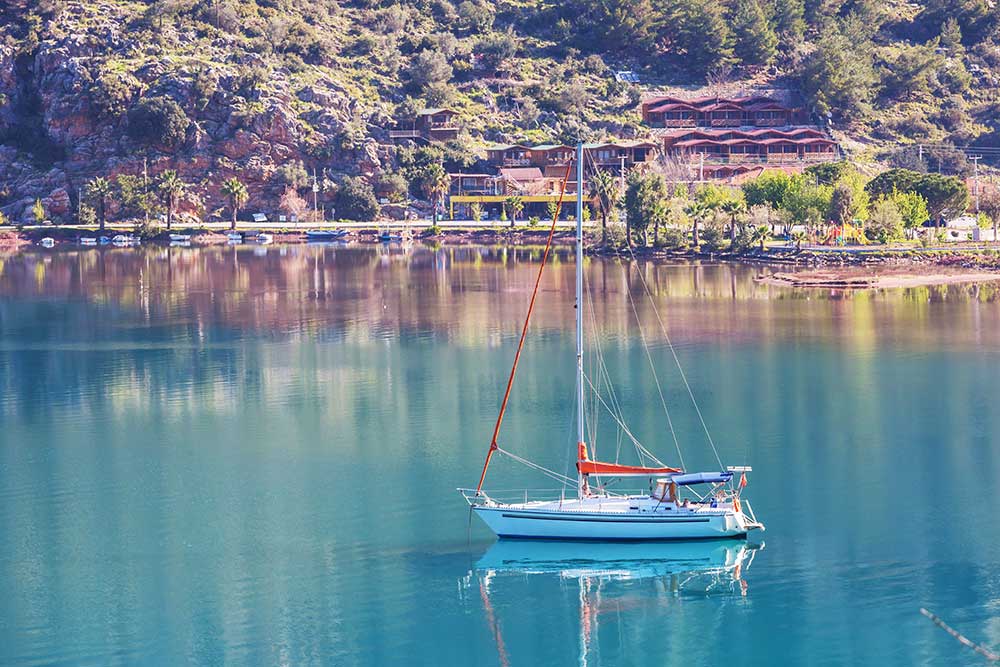
Citizenship Benefits
Investing in Turkiye yields benefits for the whole family including spouse, as well as children under 18 years of age and children living with a disability.
Access
- Visa-free travel to 120 destinations
- Free healthcare
- Free education
- Better economic opportunities
- Higher quality of life
- Eligibility for the E-2 Investor Visa in the USA (with 5-year renewal option)
Citizenship
- Lifetime Turkish citizenship for all direct family members including spouse, children under 18 years of age, as well as children of any age living with a disability
- No obligation to become a permanent resident
- Turkish passport within 4 months
Eligibility
- No eligibility interview
- No language proficiency test
- Spouse as well as children under the age of 18 are granted the same benefits
- Children of any age living with a disability are granted the same benefits
Wealth
- No obligation to declare your wealth
- No tax on any income earned outside Turkiye
- 100% wealth repatriation after 3 years (including all proceeds), with no exchange control restrictions
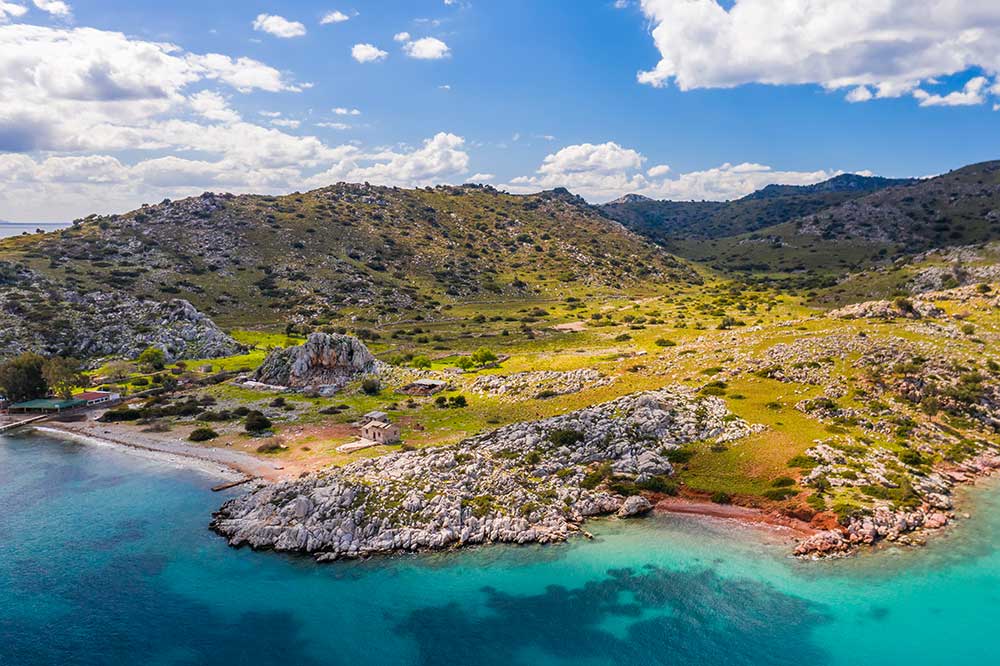
History
The Middle Ages
The region of Anatolia (the Asian portion of modern day Turkiye) has a rich history, but it wasn’t until the Seljuk Turks began to migrate to the region in the 11th century, the region wasn’t known as Turkiye.
Under the command of Alp Arslan, the Seljuks defeated the Byzantine Empire’s armies at the Battle of Manzikert in 1071, which heralded the start of absolute Turkish dominance over the region with the Seljuk Sultanate of Rûm and several small beyliks, and the Seljuks ruled Anatolia until the Mongol Empire’s invasion and the Seljuks ruled Anatolia until the Mongol Empire’s invasion. The Seljuk Empire was defeated in 1243 by the Mongol army in the Battle of Kosedag, leading to Mongol rule over Anatolia for 80 years. As the Mongol dominance weakened over the years, The Byzantines asserted greater control over the region and this led small local Turkish principalities also developped alongside.
From the 13th century century, the Ottoman beylik of the Analtolian region began to unite Anatolia under the banner of the Ottoman empire
Early Modern Era
In 1453, the Ottoman Empire fatally wounded the Byzantine Empire when it captured the Byzantine capital at Constantinople.
By the 16th century, the Ottomans had conquered most of Northern Hungary and as far west as Algeria in North Africa. At its peak period, the Ottoman Empire expanded its lands in three continents – Europe, Asia and Africa. By promoting art, culture, religious tolerance and education, the empire left constant marks on both Islamic and world history.
Modern Era
From the Ottoman Empire began to lose territory during the 18th century, Greece, the Balkans, Algeria, Libya, and Tunisia had seceded. After the Ottoman Empire collapsed following its defeat in World War I, strategically important lands of the empire were occupied by the victorious Allies. A group of military officers led by Mustafa Kemal Atatürk successfully organized the Independence War against the Allies. In 1923, the Republic of Turkiye was founded by Mustafa Kemal Atatürk and he became the first president of the republic.
Turkiye has become increasingly integrated with the West through its membership in organizations such as the Council of Europe, NATO, OECD, OSCE, and the G-20. Turkiye began negotiations for full membership in the European Union in 2005, after being an associate member of the European Economic Community since 1963 and agreeing to a customs union in 1995.
Turkiye has also fostered close cultural, political, economic and industrial relations with the Middle East, the Turkic states of Central Asia and the African countries through membership in organizations such as the Organization of the Islamic Conference and the Economic Cooperation Organization.
Due to its strategic location, large and powerful economy and army, Turkiye is classified as a major regional power.

Investment Routes
Citizenship by Real Estate Investment
Citizenship Benefits
Citizenship Eligibility
Investment Routes
1 . REAL ESTATE
Buy real estate worth at least $400,000 with a restriction not to sell for 3 years
2. GOVERNMENT BONDS
Buy government bonds worth $500,000 with a condition not to sell for 3 years
3. BANK DEPOSIT
Deposit $500,000 cash in Turkish banks with a condition not to withdraw for 3 years
4. SHARE PURCHASE
Buy shares worth $500,000 in Turkish REITs or VCTs with a condition not to sell for 3 years
5. JOB CREATION
Create 50 full-time jobs in Turkiye

Citizenship by Real Estate Investment
The majority of investors purchase real estate in Turkiye as a path to citizenship.
This route has made Turkiye one of the most popular nations for new citizenship seekers.
For a property investment of $400,000, an investor can buy a family home, a second home or even a holiday home, while unlocking the opportunity to get a Turkish passport within a few months.
The $400,000 value can be reached through the purchase of one or more properties in any region in Turkiye. Both second-hand and new properties meet eligibility requirements.
Buyers can be sure they are getting their money’s worth because unlike other nations, in Turkiye, a government authority independently evaluates and certifies the value of every home purchased by anyone in Turkiye.
Turkiye laws don’t force an investor to live in the country during or after their citizenship application. Turkish citizenship comes with a multitude of other benefits for both the main applicant as well as their direct family.
The Turkish Citizenship Through Investment in Real Estate program is one of the most attractive, lucrative and straightforward programs of its kind in the world, posing just a handful of conditions:
- Citizenship applications are only accepted after completion all purchase procedures
- Investors interested in buying or building new homes may start their citizenship application process prior to final delivery of property as long as full price and associated fees for the property purchase have been settled.
- An investor must retain ownership of the property for a period of at least 3 years before selling

Citizenship Benefits
Investing in Turkiye yields benefits for the whole family including spouse, as well as children under 18 years of age and children living with a disability.
Access
- Visa-free travel to 120 destinations
- Free healthcare
- Free education
- Better economic opportunities
- Higher quality of life
- Eligibility for the E-2 Investor Visa in the USA (with 5-year renewal option)
Citizenship
- Lifetime Turkish citizenship for all direct family members including spouse, children under 18 years of age, as well as children of any age living with a disability
- No obligation to become a permanent resident
- Turkish passport within 4 months
Eligibility
- No eligibility interview
- No language proficiency test
- Spouse as well as children under the age of 18 are granted the same benefits
- Children of any age living with a disability are granted the same benefits
Wealth
- No obligation to declare your wealth
- No tax on any income earned outside Turkiye
- 100% wealth repatriation after 3 years (including all proceeds), with no exchange control restrictions

Citizenship Eligibility
To qualify for Turkish citizenship, the main applicant must:
- Be at least 18 years old
- Hold a clean criminal record
- Have adequate health insurance
- Not be a citizen of Armenia, Cuba, Nigeria, North Korea, and Syria.
- Have never overstayed illegally in Turkiye
- Make a lawful investment

Culture
Turkiye is and always has been a bridge between cultures. Dualities of Europe and Asia, traditionality and modernity, as well as urban and rural have led to a historical mosaic and a rich cultural heritage – both past and present.
Today, Turkiye is both an Eastern and a Western nation when it comes to its cultural orientation. This cohesion of tradition and modernity and its impacts on art as well as urban and rural motifs have led Turkiye to be an exciting cultural heritage destination.
Literature, poetry, music, cuisine, art, cinema and every other expression of culture can be found in abundance in Turkiye. Whether you are visiting a city or a small town, whether you are in a tourist hub or in a local village, it is impossible to escape Turkiye’s cultural charm. No wonder Turkiye is one of the most visited countries by tourists.

Tourism
Ranked as the world’s 6th most popular tourism destination in 2019, Turkiye offers mild weather, breathtaking natural beauty, unspoiled natural landscapes, historical and archeological sites, increasingly modern hotel and tourism infrastructure, as well as warm hospitality and competitive prices.
The Turkish coastline spans around 8,000 km with the most luxurious beaches in the world featuring clear and clean water and beautiful surroundings. Besides swimming, tourists can enjoy various beach activities such as surfing, rafting, snorkeling, diving and kayaking.
From the beaches of the Aegean and Mediterranean Sea to the vibrant cities of Istanbul and Izmir, Turkiye offers some of the best cuisine you will ever taste, cutting-edge arts and entertainment and fun-loving people.
Combined with the country’s natural beauty, countless options for outdoor adventures and beautiful vistas, Turkiye is a destination that must be visited, again and again.
Combined with the country’s natural beauty, countless options for outdoor adventures and beautiful vistas, Turkey is a destination that must be visited, again and again.

Living In Turkiye
With its unique geographical location combined with a rich history, beautiful landscapes, a cultural and arts scene, world-class cuisine and multitude of activity options to suit every taste, Turkiye is a great place to live in, to start a new life, to work or even for retirement.
Living in Turkiye is attractive because the country features:
- A highly-developed infrastructure
- Excellent air and sea transport systems
- An extensive network of highways
- High-speed train network
- Competitive and free education
- Widespread network of international schools
- Large-scale, internationally-accredited universities
- Extensive and free public healthcare system
- An excellent hospital network featuring international standards in equipment quality and expertise

Moving To Turkiye
Over the past few years, an increasing number of people are moving to Turkiye.
The primary reason for this upward trend is the opportunity to purchase real estate in return for citizenship or residency.
Other factors that lead people to consider Turkiye as a place to move, live and work are:
- Strategic geographic location
- Low cost of living
- Stable and steady economic growth
- Increasingly world-class infrastructure
- Proximity to some of the world’s most lucrative economic markets
- Global and domestic connectivity
- Beautiful unspoiled landscapes
- Mild year-round weather
- Unbeatable history, culture and arts scene
- World-leading cuisine
The most popular cities for foreigners moving to Turkiye are the well-known cities of Istanbul, Ankara and Izmir. However, in recent years, lesser-known parts of Turkiye such as Trabzon and the Middle Black Sea region have also become popular as people look to take advantage of the scenery, serenity and crucially, the excellent property prices.

Global Rankings
Turkiye is Ranked:
- 11th in GDP PPP (April 2021)
- 54th in Human Development index (2020)
- 33rd in Ease of Doing Business Index (2019)
- 49th in Bloomberg’s Global Innovation Index (2019)
- 27th in Credit Suisse Global Wealth Report (2019)
- 41st in Global Food Security Index (2017)
- 47th in World Bank Logistics Performance Index (2018)

Foreign Direct Investment
Turkiye’s impressive growth performance and structural reforms implemented over the past decade and a half have made it a top destination for international investors.
According to FDI Markets, Turkiye became the 9th most popular FDI destination with 160 projects in overall Europe in 2020, retaining its ranking in 2019, while increasing its share in overall Europe from 3 percent in 2019 to 3.1 percent in 2020, despite the severe effects of Covid-19. In addition, within its developping peer countries in Europe, Turkiye was ranked as the 2nd most popular FDI destination after Poland, with a 16 percent share in 2020, up from the 3rd spot in 2019.
FDI Inflows to Turkey
Up until 2002, total FDI into Turkey stood only at USD 15 billion, while the country has since attracted around USD 225 billion of FDI during the 2003-2020 period.
Sectoral Diversification
The Finance and Manufacturing sectors have increasingly attracted the higher shares of investments, diversifying FDI inflows, in line with Turkiye’s 2023 vision.
Source Markets
The majority of FDI inflows to Turkiye have originated from Europe, North America, and the Gulf countries while the share of Asian inflows has risen noticeably in recent years.

Reasons to Invest
1. ROBUST ECONOMY
One of the fastest growing economies in the world with an average annual GDP growth rate of 5.5%
2. LARGE DOMESTIC AND REGIONAL MARKETS
Sizeable domestic market, plus regional markets with FTAs allowing access to 1 billion consumers
3. STRATEGIC LOCATION
Regional HQ for multinationals with seamless global connectivity
4. FAVORABLE DEMOGRAPHICS
Young and dynamic population with half under 32 years old
5. SKILLED AND COMPETITIVE LABOR FORCE
Well-educated, competitive labor force with high productivity
6. CONTINUOUS REFORM PROCESS
New-generation reforms owing to an open public-private dialogue
7. LIBERAL INVESTMENT CLIMATE
No barriers for FDI, strong protection for investors
8. LUCRATIVE INCENTIVES
Tailored and comprehensive incentives schemes
8. ADVANTAGEOUS R&D ECOSYSTEM
Perfect spot for technology development with generous supports
9. SECTORAL OPPORTUNITIES
Diversified economy with lucrative opportunities in many sectors

Citizenship Through Real Estate Investment
Tourism is its long history as a global beacon of hospitality, the legendary “Grande Dame of the Far East” continues to set hotel standards worldwide, offering a blend of the best Eastern and Western hospitality in an atmosphere of unmatched classical grandeur and timeless elegance.
Building on its long history as a global beacon of hospitality, the legendary “Grande Dame of the Far East” continues to set hotel standards worldwide, offering a blend of the best Eastern and Western hospitality
Tourism is its long history as a global beacon of hospitality, the legendary “Grande Dame of the Far East” continues to set hotel standards worldwide, offering a blend of the best Eastern and Western hospitality in an atmosphere of unmatched classical grandeur and timeless elegance.
Building on its long history as a global beacon of hospitality, the legendary “Grande Dame of the Far East” continues to set hotel standards worldwide, offering a blend of the best Eastern and Western hospitality
Tourism is its long history as a global beacon of hospitality, the legendary “Grande Dame of the Far East” continues to set hotel standards worldwide, offering a blend of the best Eastern and Western hospitality in an atmosphere of unmatched classical grandeur and timeless elegance.
Building on its long history as a global beacon of hospitality, the legendary “Grande Dame of the Far East” continues to set hotel standards worldwide, offering a blend of the best Eastern and Western hospitality
Investment Routes
1 . REAL ESTATE
Buy real estate worth at least $400,000 with a restriction not to sell for 3 years
2. GOVERNMENT BONDS
Buy government bonds worth $500,000 with a condition not to sell for 3 years
3. BANK DEPOSIT
Deposit $500,000 cash in Turkish banks with a condition not to withdraw for 3 years
4. SHARE PURCHASE
Buy shares worth $500,000 in Turkish REITs or VCTs with a condition not to sell for 3 years
5. JOB CREATION
Create 50 full-time jobs in Turkiye

Citizenship by Real Estate Investment
The majority of investors purchase real estate in Turkiye as a path to citizenship.
This route has made Turkiye one of the most popular nations for new citizenship seekers.
For a property investment of $400,000, an investor can buy a family home, a second home or even a holiday home, while unlocking the opportunity to get a Turkish passport within a few months.
The $400,000 value can be reached through the purchase of one or more properties in any region in Turkiye. Both second-hand and new properties meet eligibility requirements.
Buyers can be sure they are getting their money’s worth because unlike other nations, in Turkiye, a government authority independently evaluates and certifies the value of every home purchased by anyone in Turkiye.
Turkiye laws don’t force an investor to live in the country during or after their citizenship application. Turkish citizenship comes with a multitude of other benefits for both the main applicant as well as their direct family.
The Turkish Citizenship Through Investment in Real Estate program is one of the most attractive, lucrative and straightforward programs of its kind in the world, posing just a handful of conditions:
- Citizenship applications are only accepted after completion all purchase procedures
- Investors interested in buying or building new homes may start their citizenship application process prior to final delivery of property as long as full price and associated fees for the property purchase have been settled.
- An investor must retain ownership of the property for a period of at least 3 years before selling

Citizenship Benefits
Investing in Turkiye yields benefits for the whole family including spouse, as well as children under 18 years of age and children living with a disability.
Access
- Visa-free travel to 120 destinations
- Free healthcare
- Free education
- Better economic opportunities
- Higher quality of life
- Eligibility for the E-2 Investor Visa in the USA (with 5-year renewal option)
Citizenship
- Lifetime Turkish citizenship for all direct family members including spouse, children under 18 years of age, as well as children of any age living with a disability
- No obligation to become a permanent resident
- Turkish passport within 4 months
Eligibility
- No eligibility interview
- No language proficiency test
- Spouse as well as children under the age of 18 are granted the same benefits
- Children of any age living with a disability are granted the same benefits
Wealth
- No obligation to declare your wealth
- No tax on any income earned outside Turkiye
- 100% wealth repatriation after 3 years (including all proceeds), with no exchange control restrictions

Citizenship Eligibility
To qualify for Turkish citizenship, the main applicant must:
- Be at least 18 years old
- Hold a clean criminal record
- Have adequate health insurance
- Not be a citizen of Armenia, Cuba, Nigeria, North Korea, and Syria.
- Have never overstayed illegally in Turkiye
- Make a lawful investment

